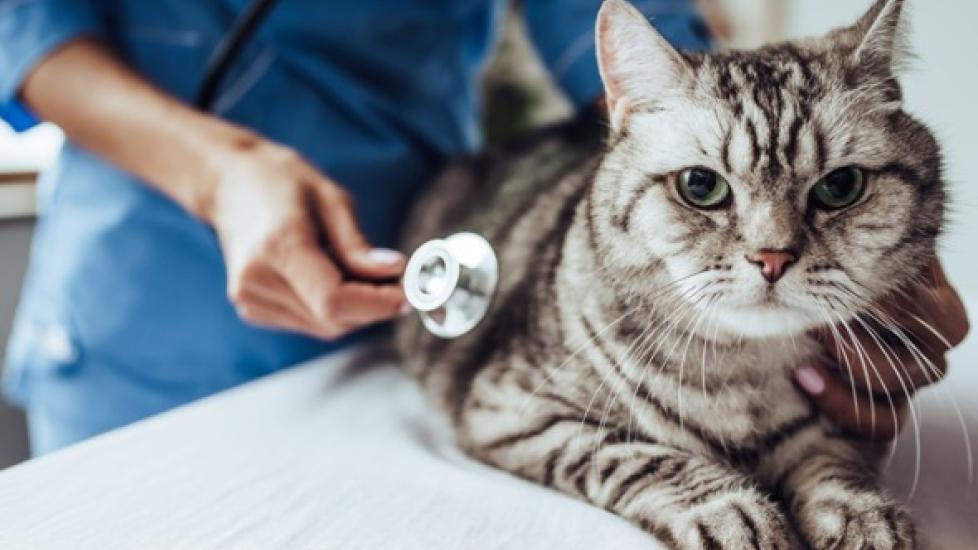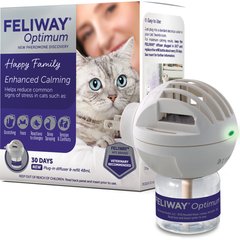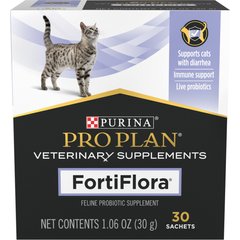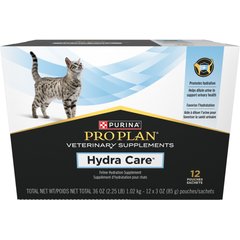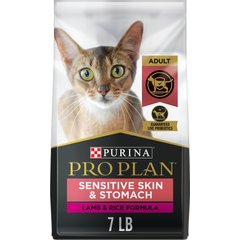Cat Exocrine Pancreatic Insufficiency (EPI in Cats)
What Is Exocrine Pancreatic Insufficiency in Cats?
Exocrine pancreatic insufficiency (EPI) in cats affects a cat’s pancreas and occurs when most of the cells that produce digestive hormones don’t function normally.
The pancreas is a small organ located under the stomach, alongside the first part of the small intestine (the duodenum).
A cat’s pancreas has two vital functions:
-
Producing insulin—the hormone that moves sugar from the bloodstream into cells.
-
Producing digestive hormones—including lipase to break down fat, proteases to break down protein, and amylase to break down starch.
Different cells within the pancreas perform these different functions. So when these cells start to malfunction or stop functioning, cats can get sick in different ways. For example, when enough insulin-producing cells are damaged, cats develop Type I diabetes. And when the cells that make the digestive hormones aren’t working properly, cats suffer from EPI.
Is EPI in Cats Curable?
Unfortunately, there is no cure for exocrine pancreatic insufficiency in cats.
Once the pancreas is damaged to the point that symptoms of EPI develop, you must give your cat pancreatic enzyme supplements and other appropriate treatments for the rest of your cat’s life. But the good news is that dedicated pet parents can expect that—with appropriate treatment—their cat will go on to enjoy a long and happy life.
Vet Recommended Health Support
- Feliway Optimum Enhanced Calming 30 Day Diffuser for Cats$29.99Chewy Price
- Purina Pro Plan Veterinary Diets FortiFlora Powder Probiotic Digestive Supplement for Cats, 30 count$30.99Chewy Price
- Purina Pro Plan Veterinary Diets Hydra Care Liver Flavored Liquid Supplement for Cats, 3-oz pouch, case of 12$14.99Chewy Price
- Purina Pro Plan Adult Sensitive Skin & Stomach Lamb & Rice Formula Dry Cat Food, 7-lb bag$28.08Chewy Price
Symptoms of Cat EPI
A study published in 2016 details the most common symptoms of cat EPI and the percentages of cats in the study that showed these symptoms1:
-
Weight loss (91%)
-
Unformed feces (62%)
-
Poor hair coat (50%)
-
Anorexia (45%)
-
Increased appetite (42%)
-
Lethargy (40%)
-
Watery diarrhea (28%)
-
Vomiting (19%)
The frequency of these symptoms is somewhat different than what we’ve seen in the past and what is commonly seen in EPI in dogs.
The same study also found that most cats (58%) suffered from at least one other health problem in addition to EPI. When this is the case, additional symptoms are also possible. For example, a cat with both EPI and diabetes mellitus could lose weight, have soft stools, and drink and urinate more than normal.
Causes of Cat EPI
Anything that damages a large part of the pancreas can cause exocrine pancreatic insufficiency in cats.
Chronic pancreatitis (inflammation of the pancreas) is by far the most common cause of EPI in cats.
Other possible causes include:
-
Birth defects
-
Cancer affecting the pancreas
-
Obstruction of the duct that connects the pancreas to the intestinal tract
Cats who eat grasshoppers can be infected with a pancreatic fluke (a type of parasite) that, in severe cases, can damage enough of the pancreas to result in EPI.
Genetics does not appear to play a big role in whether a cat develops EPI. No cat breeds are at higher risk than others, and the disease can affect cats of any age.2
How Vets Diagnose Cat EPI
The symptoms that are commonly associated with EPI in cats are also seen with many other diseases. To diagnose EPI, a veterinarian will need to run some laboratory tests.
Blood Chemistry Tests and Complete Blood Cell Count
Blood chemistry tests and a complete blood cell count will give a picture of the cat’s overall health and are used to look for problems, like anemia (a low red blood cell count), that are sometimes associated with EPI. Over half of cats with EPI also suffer from another disease, so a general health workup is necessary to reach a complete diagnosis and plan appropriate treatment.1,3
The Trypsin-Like Immunoreactivity (TLI) Test
The best test specifically for EPI in cats is the trypsin-like immunoreactivity (TLI) test. Trypsin is a digestive enzyme produced by the pancreas that is normally present at low levels in the bloodstream.
In cats with EPI, blood-trypsin levels are significantly lower than normal.
The test is easy to perform by drawing blood, but cats cannot eat for 8-12 hours before the sample is taken.
Vitamin Levels
Deficiencies in vitamin B12 (also called cobalamin) and alterations in folate levels (another type of B vitamin) are very common in cats with EPI. Your veterinarian will also send a sample to the lab to measure blood levels of these (and possibly other) important vitamins.
Treatment for EPI in Cats
Treatment for EPI centers around replacing the cat’s missing digestive enzymes, giving cobalamin supplements, and managing any other abnormalities. Some cats will also need folate supplements and antibiotics.
Pancreatic Enzyme Supplements
Pancreatic enzymes should be added to every meal.
Powdered pancreatic enzyme supplements like PancrePlus Powder for dogs and cats, Thomas Labs Bio Case Pancreatic Enzyme Powder dog and cat supplement, and PanaKare Plus Powder for dogs and cats are easy to use and usually effective.
Tablets are also available, but they don’t seem to work as well as the powders.
Tips for Administering Pancreatic Powder Supplements to Cats
The powder should be mixed thoroughly into your cat’s food because it can irritate their mouth. Some pet parents say that letting the food sit for a period of time to allow “predigestion” improves their cat’s response to treatment.
Research doesn’t seem to back this up, but it doesn’t hurt to try if your cat’s condition isn’t improving as expected.
Initially, you will follow the dosage instructions on the label or provided by your veterinarian, but once your cat’s symptoms are well-controlled, the goal is often to find the smallest amount of enzyme supplement that works for your cat.
Pancreas Meat
Another source of pancreatic enzymes is … pancreas meat from another animal.
Pet parents can purchase the organ meat from butchers, raw pet food suppliers, and other sources, but the handling and feeding of raw animal products increases the risk of foodborne illnesses like salmonellosis for everyone in the house.
A commonly recommended starting dose for pancreas meat is 1 ounce mixed with each meal, but follow your veterinarian’s recommendation, because it will be based on the specifics of your cat’s case.
Tips for Administering Raw Pancreas to Cats
Pancreas meat can be ground up and frozen in appropriate portions and then thawed before being mixed thoroughly with each meal.
Whether they are delivered in powder form or via pancreas meat, most pancreatic enzymes are broken down in the stomach. A medication that decreases stomach acid, like omeprazole, may be used if this is a concern.
Cobalamin (Vitamin B12)
Most cats with EPI need injections of cobalamin (vitamin B12) every few weeks at the beginning of treatment. As their condition stabilizes, injections can usually be spaced further apart. Switching to an oral supplement may also be possible.
Folate Supplementation
Folate supplementation is sometimes necessary, at least in the short term. Your veterinarian will monitor your cat’s vitamin levels on a regular basis to make sure they don’t become deficient again.
Antibiotics
Some cats with EPI also develop an overgrowth of bacteria in their intestinal tract, which can be managed with antibiotics (often Tylosin). Many cats only require antibiotic treatment for a month or two as their condition improves, but some may benefit from long-term therapy.
Recovery and Management of Cat EPI
After proper treatment is started, most cats with EPI start feel better quickly. Their symptoms usually improve over the course of a few days to weeks. If that’s not the case for your cat, discuss other treatment options with your veterinarian.
If your cat continues to respond poorly to treatment, it’s possible that they could be suffering from more than one health problem, and additional diagnostic testing may be necessary. Your veterinarian may recommend other treatments based on a cat’s symptoms and additional health concerns.
You can also ask your veterinarian if switching to a different diet makes sense.
EPI Cat Food Diets
There is no one type of diet that benefits all cats with exocrine pancreatic insufficiency. Because many cats with EPI also suffer from inflammatory bowel disease4, switching to a hypoallergenic diet like Hill's Prescription Diet z/d Original Skin/Food Sensitivities canned cat food may be worth a try.
Image: Tyler Olson via Shutterstock
Cat Exocrine Pancreatic Insufficiency FAQs
What should I feed my cat with EPI?
Cats with EPI can do well on many different high-quality foods. Changing your cat’s diet is not always necessary.
Because many cats with EPI also suffer from inflammatory bowel disease4, some veterinarians will recommend switching to a hypoallergenic diet like Hill's Prescription Diet z/d Original Skin/Food Sensitivities canned cat food.
References
1. Xenoulis PG, Zoran DL, Fosgate GT, Suchodolski JS, Steiner JM. Feline Exocrine Pancreatic Insufficiency: A Retrospective Study of 150 Cases. J Vet Intern Med. 2016 Nov;30(6):1790-1797. doi: 10.1111/jvim.14560. Epub 2016 Sep 19. PMID: 27641602; PMCID: PMC5115185.
2. Jörg M. Steiner, DrMedVet, PhD, DACVIM, DECVIM-CA, AGAF. Exocrine Pancreatic Insufficiency in Cats. Texas A&M University, College Station, TX, USA. World Small Animal Veterinary Association World Congress Proceedings, 2014.
3. Thompson KA, Parnell NK, Hohenhaus AE, Moore GE, Rondeau MP. Feline exocrine pancreatic insufficiency: 16 cases (1992-2007). J Feline Med Surg. 2009 Dec;11(12):935-40. doi: 10.1016/j.jfms.2009.04.004. Epub 2009 Jun 23. PMID: 19553151.
4. Watson PJ. The exocrine pancreas. In Small Animal Internal Medicine 5th ed. Nelson RW, Couto CG. Eds. 2014. Elsevier Mosby, St. Louis, MO. 598–628.
